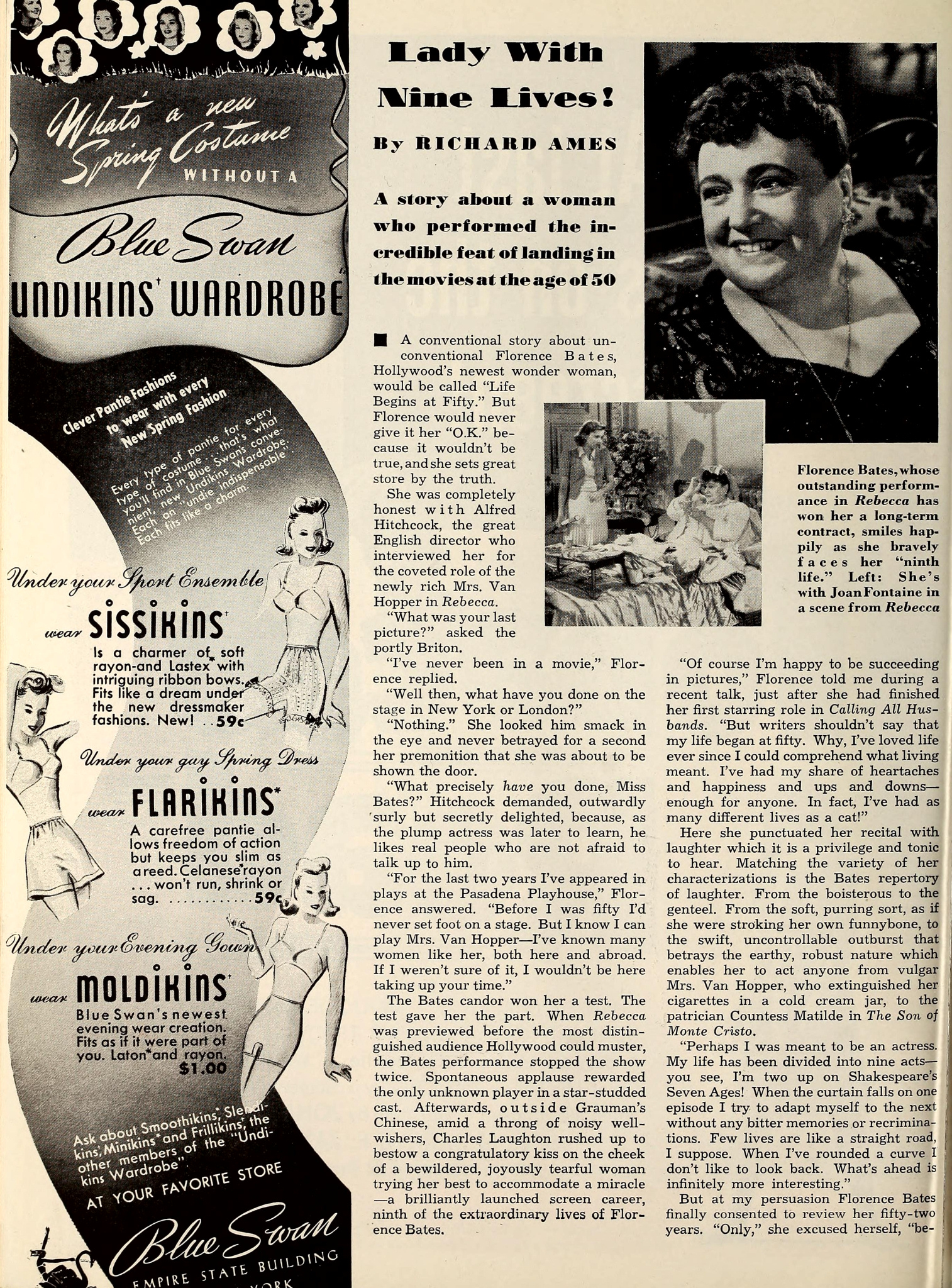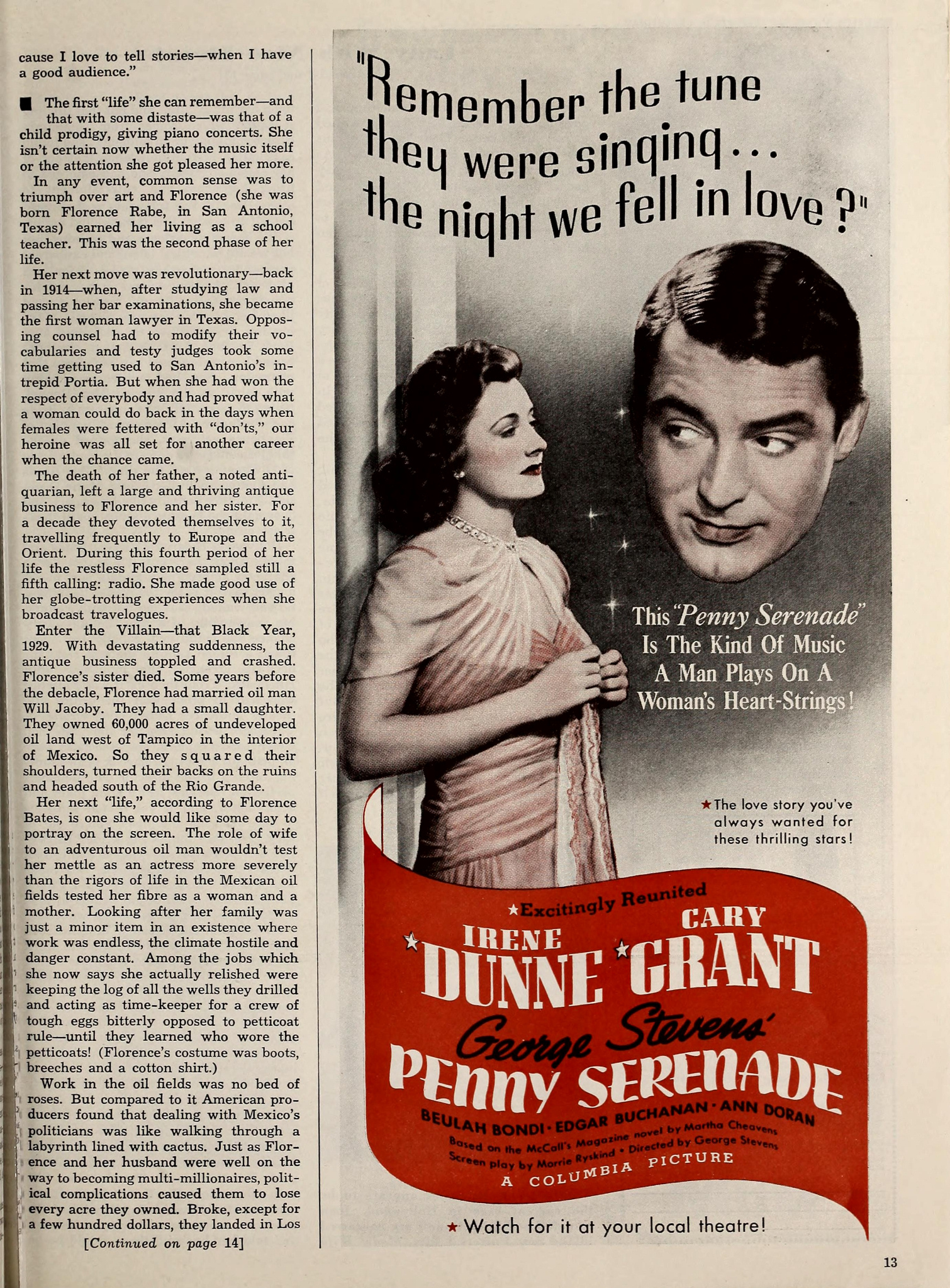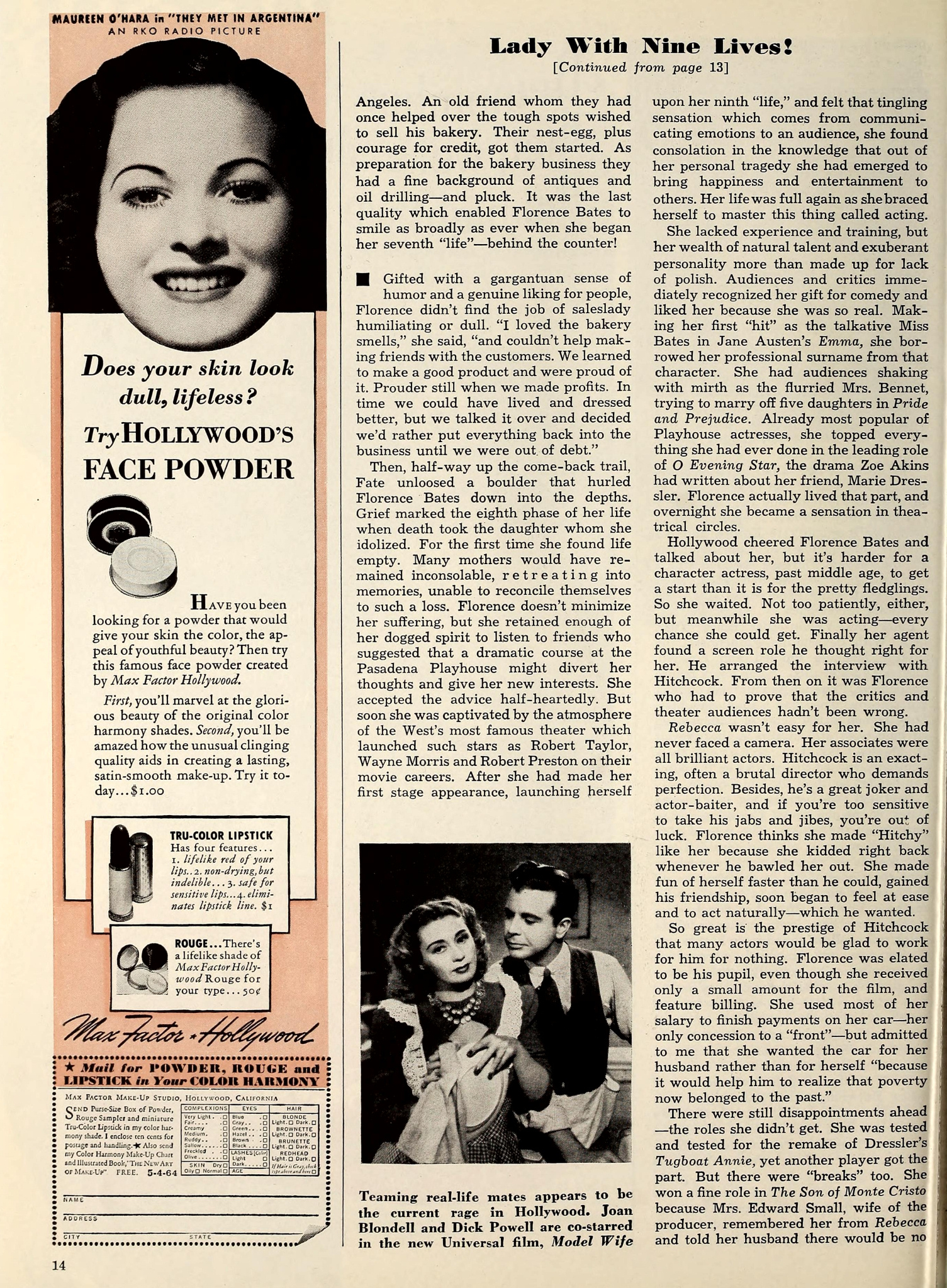Hollywood Magazine (1941) - Lady With Nine Lives!
Details
- article: Lady With Nine Lives!
- journal: Hollywood Magazine (April 1941)
- issue: volume 30, issue 4, pages 12-15
- journal ISSN:
- publisher: Fawcett Publications, Inc.
- keywords: Alfred Hitchcock, Charles Laughton, Florence Bates, New York City, New York, Rebecca (1940), Universal Studios, Warner Bros.
Links
Article
Extracts
A conventional story about unconventional Florence Bates, Hollywood's newest wonder woman, would be called "Life Begins at Fifty." But Florence would never give it her "O.K." because it wouldn't be true, and she sets great store by the truth.
She was completely honest with Alfred Hitchcock, the great English director who interviewed her for the coveted role of the newly rich Mrs. Van Hopper in Rebecca.
"What was your last picture?" asked the portly Briton.
"I've never been in a movie," Florence replied.
"Well then, what have you done on the stage in New York or London?"
"Nothing." She looked him smack in the eye and never betrayed for a second her premonition that she was about to be shown the door.
"What precisely "have you done, Miss Bates?" Hitchcock demanded, outwardly 'surly but secretly delighted, because, as the plump actress was later to learn, he likes real people who are not afraid to talk up to him.
"For the last two years I've appeared in plays at the Pasadena Playhouse," Florence answered. "Before I was fifty I'd never set foot on a stage. But I know I can play Mrs. Van Hopper—I've known many women like her, both here and abroad. If I weren't sure of it, I wouldn't be here taking up your time."
The Bates candor won her a test. The test gave her the part. When Rebecca was previewed before the most distinguished audience Hollywood could muster, the Bates performance stopped the show twice. Spontaneous applause rewarded the only unknown player in a star-studded cast. Afterwards, outside Grauman's Chinese, amid a throng of noisy well-wishers, Charles Laughton rushed up to bestow a congratulatory kiss on the cheek of a bewildered, joyously tearful woman trying her best to accommodate a miracle —a brilliantly launched screen career, ninth of the extraordinary lives of Florence Bates.
Hollywood cheered Florence Bates and talked about her, but it's harder for a character actress, past middle age, to get a start than it is for the pretty fledglings. So she waited. Not too patiently, either, but meanwhile she was acting—every chance she could get. Finally her agent found a screen role he thought right for her. He arranged the interview with Hitchcock. From then on it was Florence who had to prove that the critics and theater audiences hadn't been wrong.
Rebecca wasn't easy for her. She had never faced a camera. Her associates were all brilliant actors. Hitchcock is an exacting, often a brutal director who demands perfection. Besides, he's a great joker and actor-baiter, and if you're too sensitive to take his jabs and jibes, you're out of luck. Florence thinks she made "Hitchy" like her because she kidded right back whenever he bawled her out. She made fun of herself faster than he could, gained his friendship, soon began to feel at ease and to act naturally—which he wanted.
So great is the prestige of Hitchcock that many actors would be glad to work for him for nothing. Florence was elated to be his pupil, even though she received only a small amount for the film, and feature billing. She used most of her salary to finish payments on her car—her only concession to a "front"—but admitted to me that she wanted the car for her husband rather than for herself "because it would help him to realize that poverty now belonged to the past."




